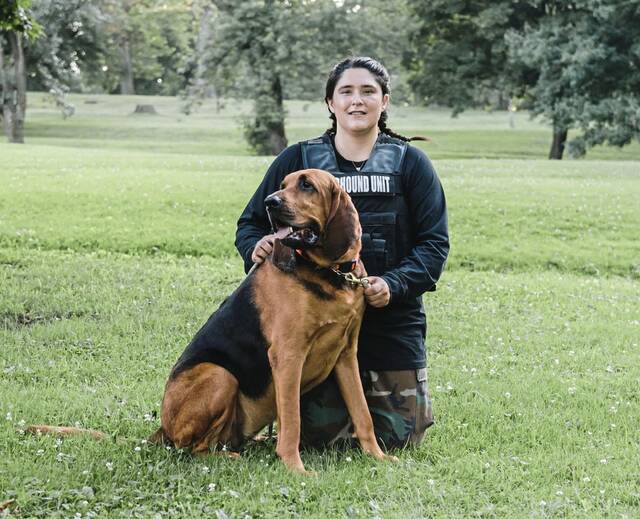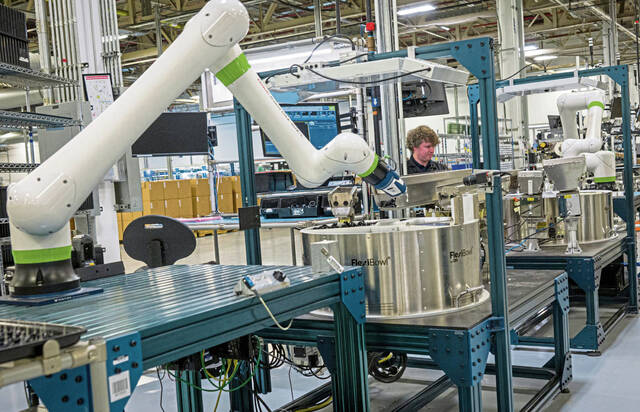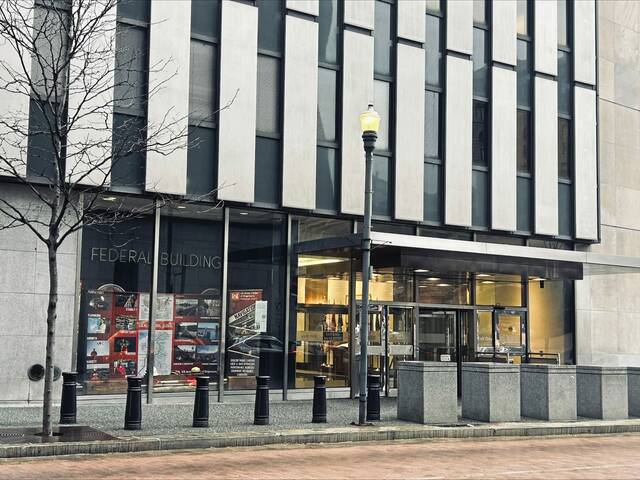For defense attorneys representing people in Western Pennsylvania charged in the Jan. 6, 2021, attack on the U.S. Capitol, the last two days have been frenzied.
President Donald Trump on Monday pardoned everyone charged in the Capitol riot four years ago, clearing the way for the release of hundreds of people across the country who are incarcerated or on federal supervision.
The problem, local attorneys said Tuesday, is that the mechanism for how, when and where their clients will be released has not yet been made clear.
“There’s been a frenzy of activity across the country the last day,” said attorney Owen Seman, who represents Tristan Sartor of Ruffs Dale, whose case is still pending. “Because of the lack of specificity in the executive order, defense attorneys are just trying to make sure their clients are a part of that.”
Sartor, who is not in custody, pleaded guilty to two misdemeanor counts and was awaiting sentencing next month when Trump issued the pardon.
Seman said late Monday and during the day Tuesday that he’d heard from attorneys who said some prisons have been actively releasing the Jan. 6 defendants while others are ignoring their calls.
Robert Morss, a former Shaler substitute teacher who was ordered to serve 5½ years in prison following his conviction in a bench trial, was being held at Renewal, the federal reentry center in Pittsburgh, when, he posted on X, that he was released around midnight.
Wanna know how I know they are afraid of you?
— AKATheLegoMan (@AKATheLegoMan) January 21, 2025
IT WORKED!!!!!!! ????????????????????????????????
God bless WE THE PEOPLE!!!!!!
FREE AT LAST!!!! pic.twitter.com/t7kw82AOjP
But for others, Seman said, that’s not the case. Some facilities, he was told, were refusing to release inmates without paperwork.
“What jail across the country is just going to open the door and let people out?” Seman asked.
One of the complicating factors, Seman said, is that Trump’s order did not explicitly name all of the defendants being pardoned.
Instead, Trump listed 14 by name — including members of the Oath Keepers and Proud Boys — and included everyone else in this sentence: “grant a full, complete and unconditional pardon to all other individuals convicted of offenses related to events that occurred at or near the United States Capitol on Jan. 6, 2021.”
According to the U.S. Attorney’s office in Washington, D.C., that covers the 1,583 people who were charged.
‘Unprecedented situation’
The Jan. 6 investigation has been described as the most complex ever undertaken by the Department of Justice. Dozens of federal prosecutors from across the country were brought in to help try the cases, and the investigation encompassed thousands of hours of video footage reviewed by law enforcement and civilians in an attempt to identify everyone who entered the Capitol that day.
The pardons, said University of Virginia Law Professor Saikrishna Prakash, nullify that.
“Any pardon that’s not given to people you think are innocent is in tension with the law,” Prakash said. “That tension is especially there if the person admits to having done the thing.”
Out of the people charged, 1,009 pleaded guilty, the U.S. Attorney’s office said. Another 221 were convicted at trial. About 1,100 have had their cases completely adjudicated. Of those, the government said, 667 received sentences of incarceration. Another 145 were sentenced to home confinement.
Trump’s order on Monday said the U.S. attorney general is to issue a certificate of pardon for all of those being held in prison and dismiss with prejudice all pending indictments.
Seman said he was hoping to receive instructions from the Justice Department about what, if anything, needs to be filed.
“It’s an absolutely unprecedented situation in American jurisprudence,” he said.
In some instances, federal prosecutors have already filed notice of the pardons.
In at least one pending local case, for Jeremy Vorous, whose trial was scheduled for April, the assistant U.S. attorney filed a motion to dismiss the indictment with prejudice on Tuesday.
Komron Jon Maknoon, a lawyer in Sewickley, represents four Jan. 6 defendants. He’s been telling his clients to call their probation officers to get some guidance.
“It’s just working it through the process of the courts to the field offices,” he said.
Joe Otte, an attorney in Downtown Pittsburgh, represented two people charged in the Jan. 6 case.
His understanding is that the Justice Department will process the pardons and get them posted to each individual’s docket for the courts to then follow up. Otte believes, however, that the previous criminal records for each defendant will remain publicly available.
Different takes
In President Joe Biden’s last weeks in office, he commuted the sentences of about 4,000 people in prison and preemptively pardoned members of his administration to guard against potential revenge under Trump.
He also pardoned his own son and, on his way out of the White House on Monday, his siblings and their spouses.
David Hickton, a former U.S. attorney in Pittsburgh and Barack Obama appointee, said he was disappointed in both Biden and Trump for what he called “their expansion and misuse of the presidential pardon power.”
“For example, I am revolted at the commutation of the sentences of the Kids-for-Cash judge and the (Gregory) Podlucky case, which I prosecuted,” Hickton said — both part of Biden’s orders in December.
Kids for Cash refers to a former judge in Northeast Pennsylvania who gained notoriety for a scheme to send children to for-profit jails in exchange for kickbacks. Podlucky was the former chairman and CEO of a now-defunct Latrobe beverage and bottling company who was sentenced to 20 years in federal prison in 2011 for his role in a multimillion-dollar fraud scheme.
U.S. Sen. John Fetterman, D-Braddock, addressed the pardons Tuesday in a statement.
“I disagreed with some of President Trump’s pardons — especially any violence directed at the police — just like I disagreed with some of President Biden’s,” Fetterman said. “I strongly believe in accountability for crime and a path to redemption in second chances for people who deserve them.
“But redemption can’t become a political tool. When we weaponize our judicial system for political gain, we damage our nation’s confidence in the system altogether.”
Prakash, the University of Virginia law professor, said there is tension between the use of pardons and the rule of law, which enshrines the notion that everyone is subject to our laws regardless of position or power.
“On one hand, this is creating targeted exceptions to the rule of law,” he said.
But, Prakash continued, pardon power also comes from the Constitution.
“The system has decided this is a prerogative of law,” Prakash said.
Hickton noted that 400 of the people pardoned by Trump were convicted of assaulting a police officer.
“In the case of Jan. 6, no matter how strongly those defendants believed in their position, violence is criminal and unacceptable,” Hickton said. “We need to reexamine the law on pardons and at least apply the law as it exists.”
To qualify for a pardon, a defendant must admit guilt and express contrition, according to Hickton. Their application must be reviewed before arriving at the president’s desk.
“That has not happened here,” Hickton said.
The politicization of the criminal justice system, he continued, is bad for the country.
“We need people to trust and believe that justice is blind and that equal justice under the law is delivered as promised in the Constitution and Bill of Rights, just as we were taught in grade school.”








